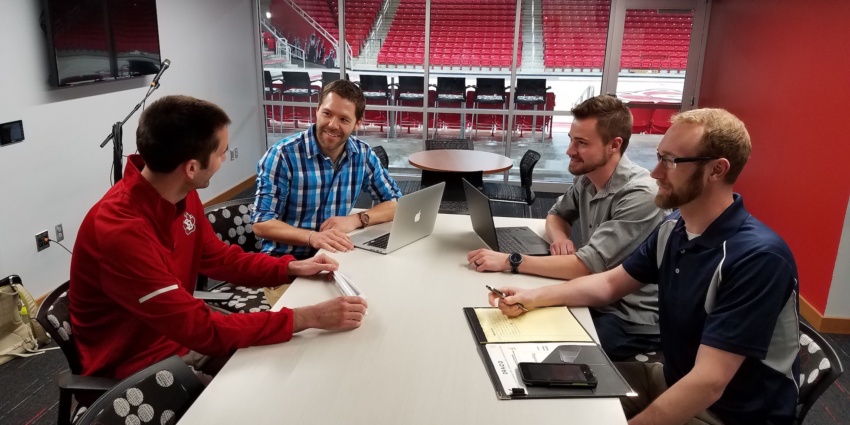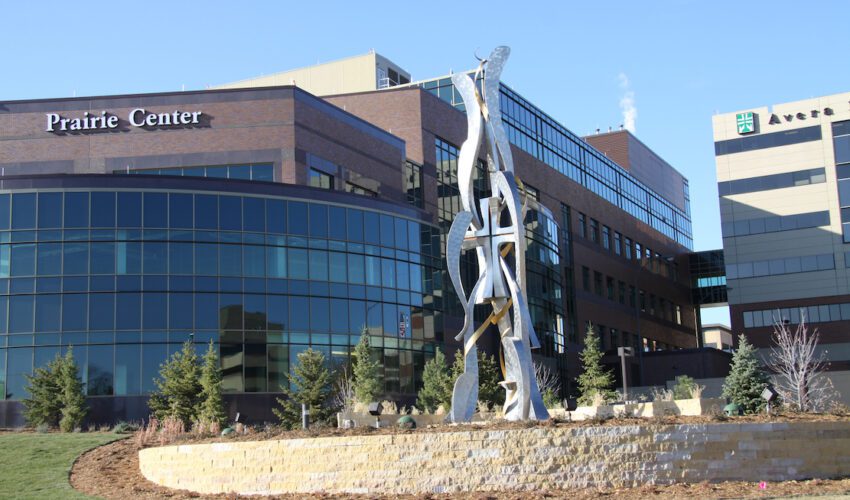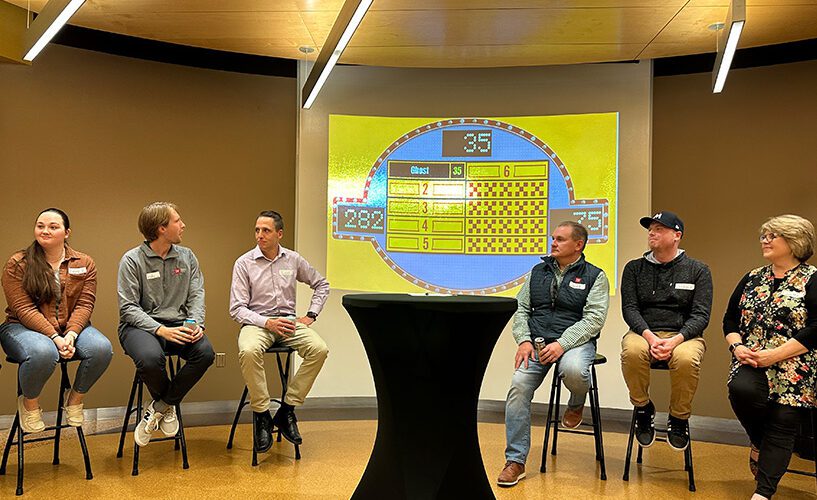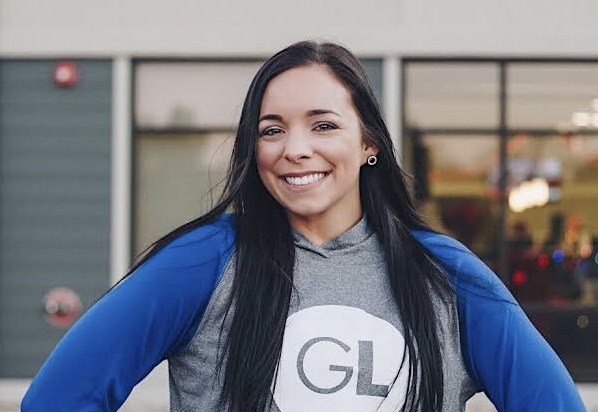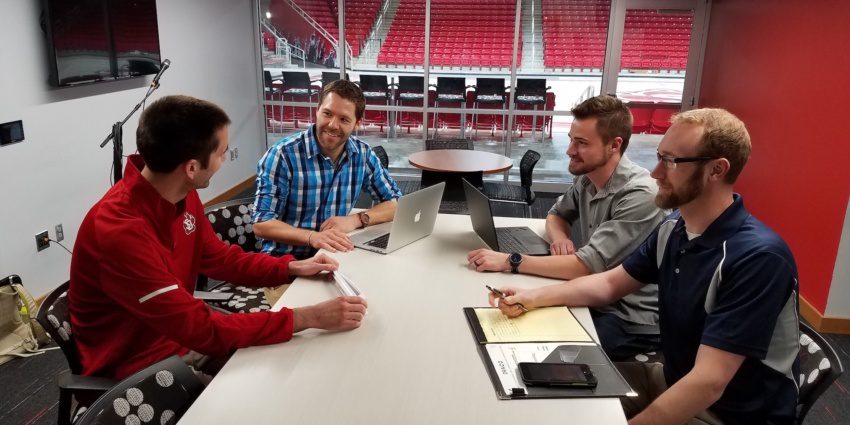First National backs effort to grow bioscience work from the ground up
Sept. 27, 2018
This paid piece is sponsored by The First National Bank in Sioux Falls.
In an environment where a bank president can bump into a biomedical engineering student, here is what can happen.
“His eyes lit up,” said Chris Ekstrum, president of The First National Bank in Sioux Falls, recalling that chance meeting last year with USD graduate student Eric Sandhurst.
The two had crossed paths at the GEAR Center and Zeal Center for Entrepreneurship and connected at an event for entrepreneurs and researchers.
Sandhurst and fellow student Jevin Meyerink had been working on a new nonprofit, Dakota Research and Consulting Organization, or DRACO, aimed at providing cost-effective services to biotech companies and using their creativity and engineering skills to address challenges that affect South Dakota.
A collaboration between students from the biomedical engineering and computer science departments at the University of South Dakota and the biomedical engineering department at the South Dakota School of Mines & Technology, it was just getting started and captured Ekstrum’s interest.

Chris Ekstrum
“We had lunch, and they explained their concept in more detail,” Ekstrum said. “We decided it was something unique that we could get behind at the bank.”
The First National Bank in Sioux Falls gave DRACO enough funding for a year’s rent at Zeal and to build a website.
“He was really on board from day one and wanted to see us succeed,” Sandhurst said.
“By allowing us to establish a presence at Zeal, we could bring our student members to have an experience outside of the classroom and the lab, and network and attend events. And First National has been key in making connections. With them as a strategic partner, it’s been really helpful.”
DRACO’s goal is to support the growing bioscience industry in South Dakota by consulting for companies but also by developing student consultants and educating about regional science initiatives.
“This organization is drawn to someone who has that entrepreneurial passion,” Ekstrum said. “We learn from them, and they’ve agreed to educate us. It’s a great connecting point and starting point. These are entrepreneurial graduate students creating a fantastic experience that’s greater than the lab.”
The connections made already are leading to new endeavors.
One new community project for DRACO involves developing a machine to turn plastic waste into construction material, with a short-term goal of creatively using recycled plastic in South Dakota and a long-term goal of using it in developing nations where recycling is challenging.
Meyerink and Sandhurst have designed a large extruder head capable of producing an interlocking H beam that theoretically could be used as construction material. To fulfill the long-term goal, the machine ideally would be small enough to fit in a shipping container and use plastic materials found locally in developing nations.
“Simplicity is important with this project because of where it’s going,” Meyerink said. “If we can develop it so it can be used on-site, you’d be able to take raw materials on a beach, clean it, sort it, recycle it and start building shelters or low-income housing or use it in disaster relief and military applications.”
DRACO will partner with students at the School of Mines to work through the design and engineering of the Eco-Beam project.
They’re also working with Millennium Recycling in Sioux Falls, a business client of First National Bank, to secure the raw plastic material needed to make it work. That’s a win-win for both, as Millennium also is interested in finding a use for that type of material.
“Recycling is all about innovation and product development for a new purpose. The viability of recycling rests on the creative insight of those who produce products that are marketable to the public and create a demand for the supply of these plastics,” Millennium president Shannon Dwire said.
“The current global impact that China has created with their recycling bans makes projects of this nature more important than ever. Our success and how we survive is based on working through challenging materials, challenging equipment and challenging markets. This project reflects this and supports recycling and sustainability challenges not only locally but has goals nationally and globally. We are proud to support a project that uses talent and partners within South Dakota.”
Meyerink Farm Service also is helping with access to a suite of machines that will be used to help make some of the pieces.
The goal is to create a working prototype in the coming months.
It’s the sort of endeavor that shows what can happen when biotech talent is retained in the state, Ekstrum added.
“If you can repurpose these plastics into structural products, that’s absolutely fantastic,” he said.
DRACO’s services to other biotech companies include market research, technology assessment and grant writing. To learn more and connect with them, click here.
“Supporting an organization like DRACO is not a typical bank investment,” Ekstrum said. “We make 50-year investment decisions here. This is a small one. But if we can somehow grow that bioscience infrastructure, that definitely helps our community and our state. And that’s very important to us.”

